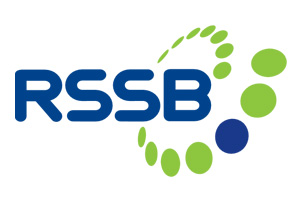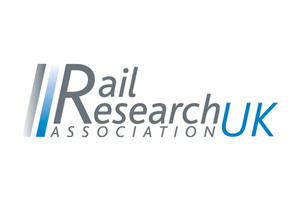
Railway Safety – Keep Safe Project
A KnowledgE Elicitation aPproach to understanding railway SAFEty (KEEP SAFE)
Understanding data and safety in the future railway
A project funded by the Railway Safety and Standards Board (RSSB).
The Problem
A vast range of data exists within the railway industry, and their availability continues to increase as aresult of uninterrupted data collection processes across the industry. This project has demonstrated the feasibility of using the data available within the railway industry to inform new mechanisms to assure safety and security of customers, staff and the public in an industry where the interdependence between physical and digital environments is set to grow exponentially over the next few years.

Continuous data collection processes from several sources provide the railway industry with regular snapshots of the situation and usage of their infrastructure and capabilities, determined by variables such as location, status and condition of their network of physical assets and infrastructure, or information about their customers (e.g. passenger, ticketing and journey information), freight-related information, status of their information systems, or safety information collected in stations and other areas. In addition to this, it has become essential for the railway industry to understand data about natural phenomena such as flooding and landslides.
However, despite the current use of those heterogeneous and sometimes contradictory data streams by specific stakeholders, the railway as an industry is still to realise the full potential of all the data available and understand their growing value for the future of the railway (ORR, 2012).
The proposed solution
A joint view of the railway data resources could lead to a wide consensus on its value, sharing and use by key stakeholders. This would have countless benefits for the railway industry.
In particular, the KEEP SAFE project focused on demonstrating how the data available can help in designing and putting in place mechanisms to assure safety and security of customers and staff in the railway industry, where the interdependence between physical and digital environments is set to grow exponentially over the next few years.
The project team understood that the ability to combine existing data and experts’ knowledge of factors affecting safety is essential in the process of predicting how safe tomorrow’s railway will be. Thus, the project used both data and expertise to facilitate prediction of safety issues.
The project outputs
The KEEP SAFE project successfully achieved the following:
- Developed the ideas for a basic, high-level Information Architecture for the British Railway.
A broad range of data sets potentially relevant for the purpose of safety were identified. In line with our approach to capturing experts’ knowledge, this work paved the way for railway experts to meet and discuss those data sets which could help understand safety in the future railway.
- Created a series of metadata-driven, safety-focused models of railway operation and performance.
A two-day workshop was run at Coventry University to facilitate experts’ engagement and consultation, with various stakeholder groups within rail industry in January 2014. The ultimate outcome of the knowledge elicitation workshop was having experts’ views on the value of the sources of safety-related data previously discovered by the project team, as well as identifying new data sources to be integrated into a probabilistic data analysis tool to understand safety.
Attendants to the workshop included senior safety and data management experts from RSSB, Network Rail, London Underground, Transport for London, TRE Rail Ltd, FCP, Staff Management Tools Ltd and TIBCO Software Limited.
Models developed at the workshop included an overall Railway system approach to safety, an application of the EFQM model to Railway systems and an understanding of safety management based on London Underground’s operation.
The quality and richness of the data gathered throughout the two days of the workshop also promoted an understanding of the potential benefits of knowledge sharing for the stakeholders. This shows that developing a meaningful knowledge elicitation and transfer strategy is key where knowledge (e.g. experience, skills and information) would be used as a means of improving safety in the industry.
- Developed a software tool that uses metadata models for the prediction of safety-related issues.
A key deliverable of the KEEP SAFE project was a software tool that can use any safety-focused model of railway operation and performance in the form of a Bayesian network to analyse data available for the purpose of predicting safety-related incidents.
The software tool was developed and tested using a safety case (i.e. Platform-Train Interface) to allow the railway expert to:
- Use data already available and its quantitative analysis to consolidate, improve and reorganise where necessary the qualitative models of rail operation and safety into more elaborated and accurate models.
- Use the resulting probabilistic model to generate meaningful prognostics information from data available and visualise such information in a way that supports prediction of safety violations.
The impact
The findings of this project promise to support decision-making in relation to a number of areas within the railway industry as a system. The project may therefore have an impact in practice and theory in a number of additional areas including infrastructure reliability, security of railway-related information systems, prognostics, predictive maintenance and human factors.
Given the quality of its outputs, the KEEP SAFE project team has been invited to present the project to specific RSSB working groups and to a wider rail-related audience in the Rail Research UK (RRUK) annual conference later this year.
Project Team
- Dr Alexeis Garcia-Perez, PI
- Dr Siraj A. Shaikh, Co-PI
- Mahsa Jahantab, Research Assistant
- Harsha Kumara, Research Assistant
*Coventry University Higher Education Corporation offers services through subsidiaries which form the Coventry University Group. Delivery of the above mentioned services will therefore be via an entity which forms part of the Coventry University Group. The Coventry University Group includes, but is not limited to Coventry University College Limited, Coventry University London Campus Limited, Coventry University Enterprises Ltd, CU Services Ltd, Serious Games International and formerly ACUA Ltd and Acua Solutions Ltd. The Group delivers teaching, research and commercial services.




